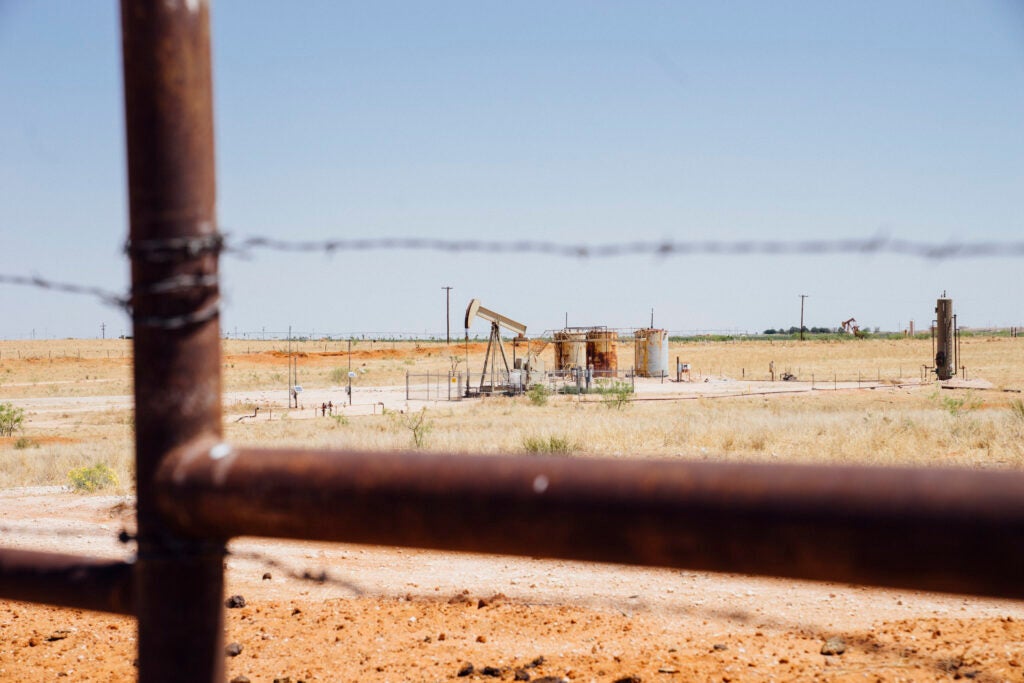By Adam Peltz and Meg Coleman
New Mexico’s legislators have a remarkable opportunity in the coming days to protect New Mexico families, businesses and the environment by revising the antiquated Oil and Gas Act with House Bill 133.
What’s currently at stake is who will pay for the billions of dollars-worth of well plugging and clean-up costs for end of life oil wells: oil and gas operators or New Mexico’s taxpayers. HB 133 will give the New Mexico Energy, Minerals and Natural Resources Department the leeway to ensure that oil and gas operators are able and required to cover these costs rather than New Mexicans.
New Mexico can protect its citizens by closing an orphan well loophole Share on XWhen oil wells cease to be productive, they need to be plugged in order to prevent methane emissions, air toxics emissions, groundwater contamination, and to protect public health and safety. If a company fails to plug their wells, either through bankruptcy or disappearance, it is considered an orphan well. There are approximately 1,700 orphan wells in the state, with many thousands more wells that are at risk of becoming orphaned over the coming decades.
Currently, oil and gas operators in New Mexico can cover the liability of all of their active wells with a single blanket bond of $250,000. This means that if a well is orphaned, state regulators can collect this blanket bond to pay for plugging costs. As you might expect, $250K doesn’t go very far in the well plugging business — in New Mexico on average it covers the cost of plugging two wells.
There are several operators in the state with hundreds or even thousands of wells on their books: all covered for a mere $250K blanket bond. If those companies were to go bankrupt the state will inherit tens or even hundreds of millions in plugging costs that taxpayers will be on the hook for.
EMNRD has proposed a solution to this, which is the basis of HB 133. The bill would raise caps for the largest operators to $10 million — with provisions to exclude small businesses (which make up 80% of the state’s operators) from financial assurance increases. The bill will also give EMNRD more authority to prevent well transfers to companies that are at risk of bankruptcy, meaning that the bill will empower EMNRD to reduce taxpayer costs at several different stages of the process.
The sooner we pass the bill the better. Recently EMNRD settled with Texas-based Ridgeway Arizona Oil Corp, a company on the verge of bankruptcy and responsible for numerous violations. The state will be covering the lion’s share of the estimated $30 million cost to plug 300 of Ridgeway’s languishing inactive wells — a cost to which Ridgeway will contribute a whopping $30,000 per month for as long as they continue to have cashflow.
Assuming the company is still solvent and making money, then they’ll finish paying off the costs in late spring of the year 2107.
Common sense would tell us that this is not a fair way to distribute responsibility, and New Mexicans agree — in November 2023 a poll conducted by Change Research asked New Mexico voters “Do you support or oppose requiring oil and gas companies to plug up the wells they have created when the wells are no longer producing energy?” 80% of respondents said yes, while only 10% said no, meaning that requiring oil and gas companies to plug their own wells is a +70 issue in New Mexico. It’s not just sensible and urgent to pass HB 133, but also a potential political win for state leaders.
HB 133 wouldn’t entirely prevent the Ridgeway situation (again, the cap on blanket bonds will only be raised to $10 million), but $10 million is a substantial improvement over the current $250K. EMNRD is in charge of looking out for the natural wonders that make New Mexico so beautiful, protecting the public health of families and communities here, and managing the rich resources that help keep the state’s economy humming.
That’s a lot of responsibility, and it’s urgent that we empower the state with tools that can help it avoid exploitative situations like the one with Ridgeway. The financial assistance reform in HB 133 is one way that we can help EMNRD achieve its mission and keep New Mexicans safe from the harms of old, leaky wells.













